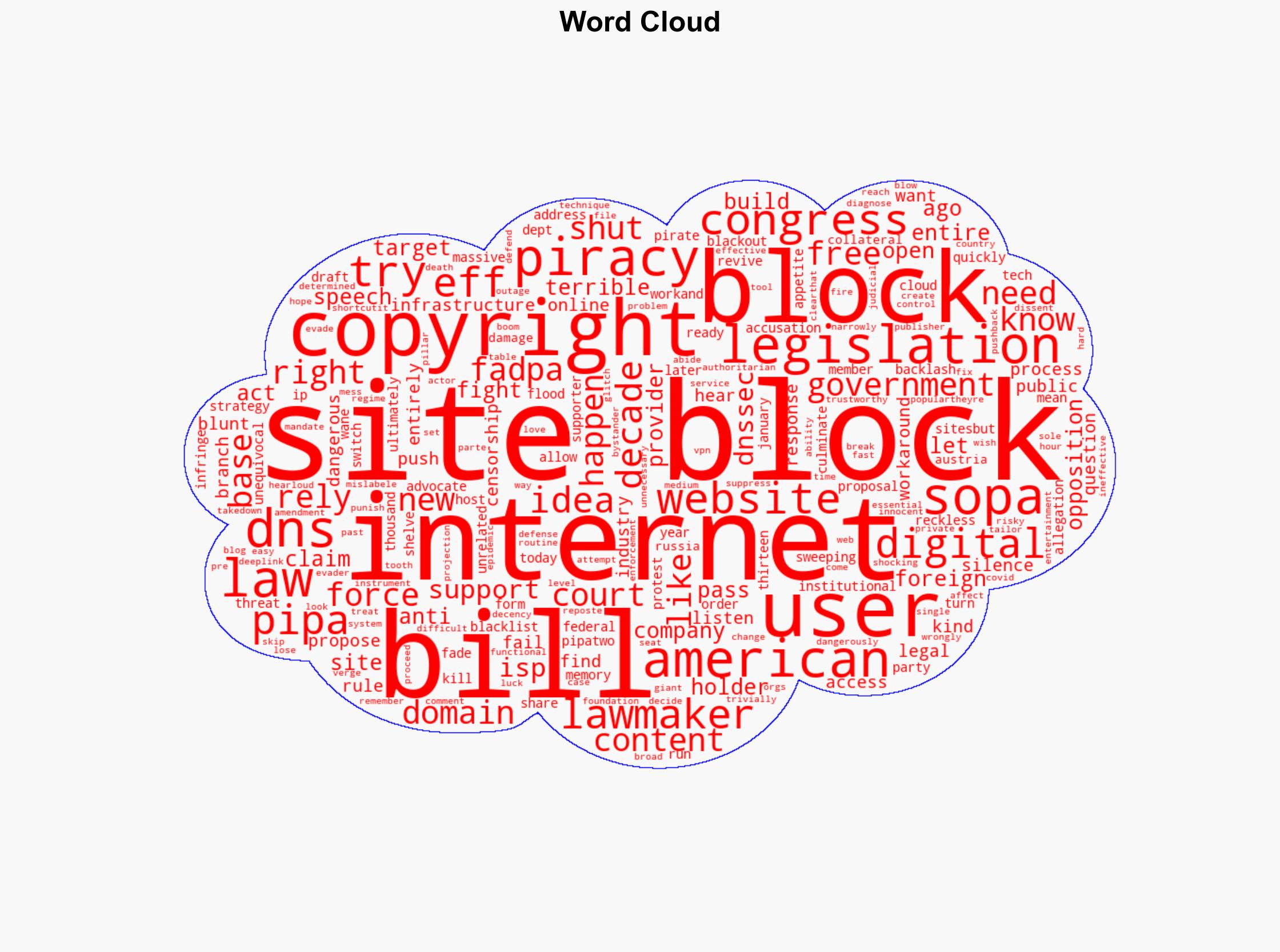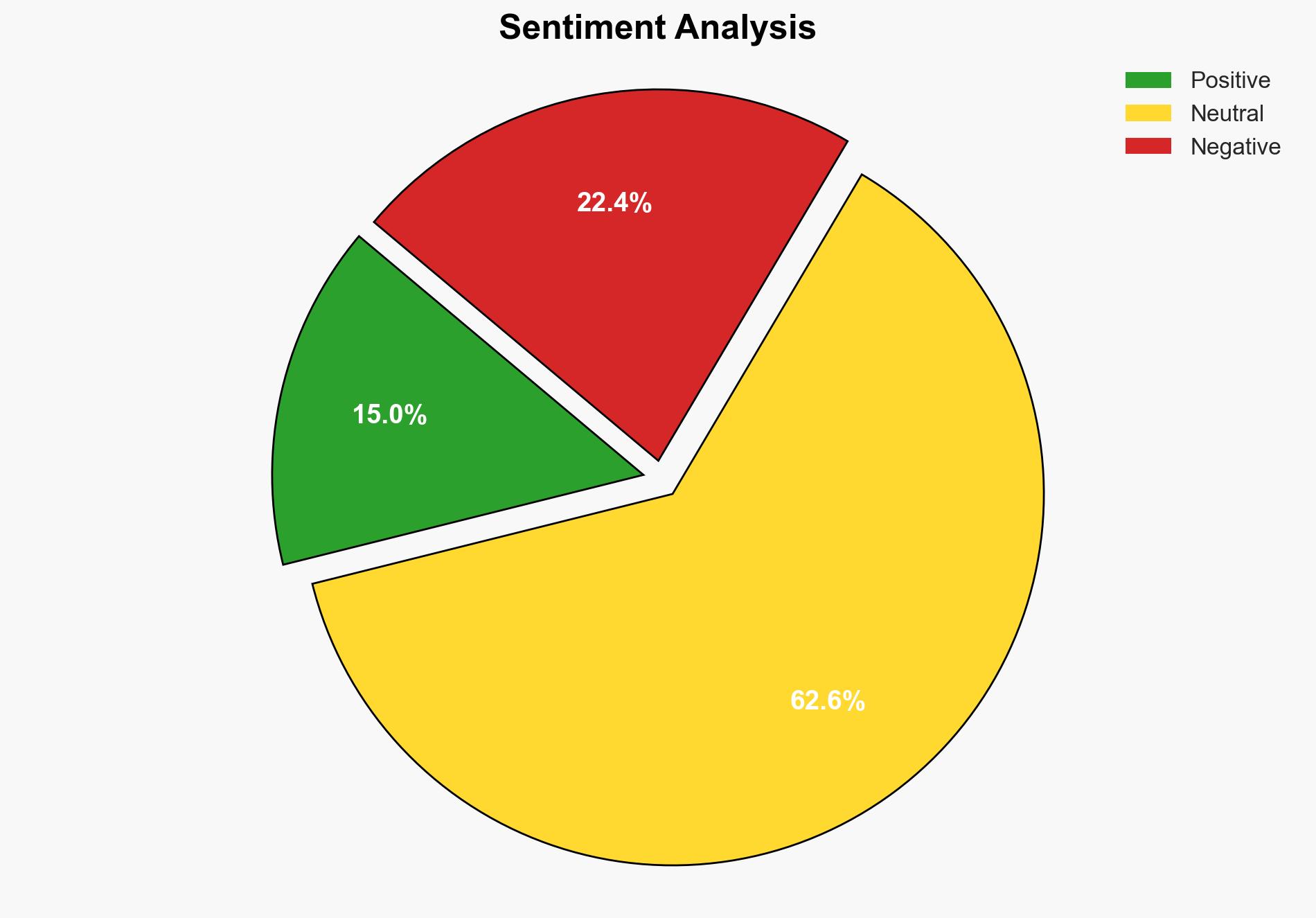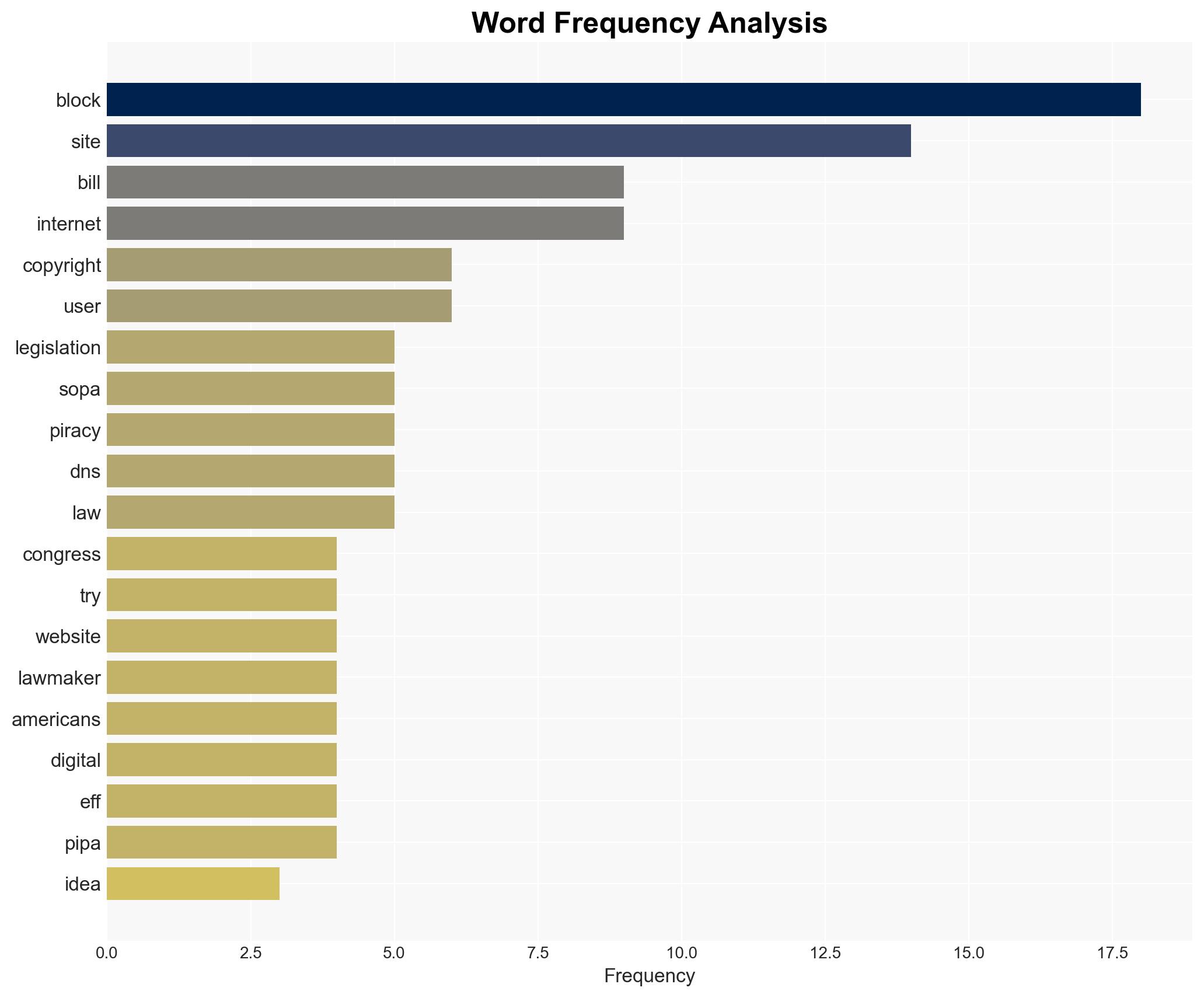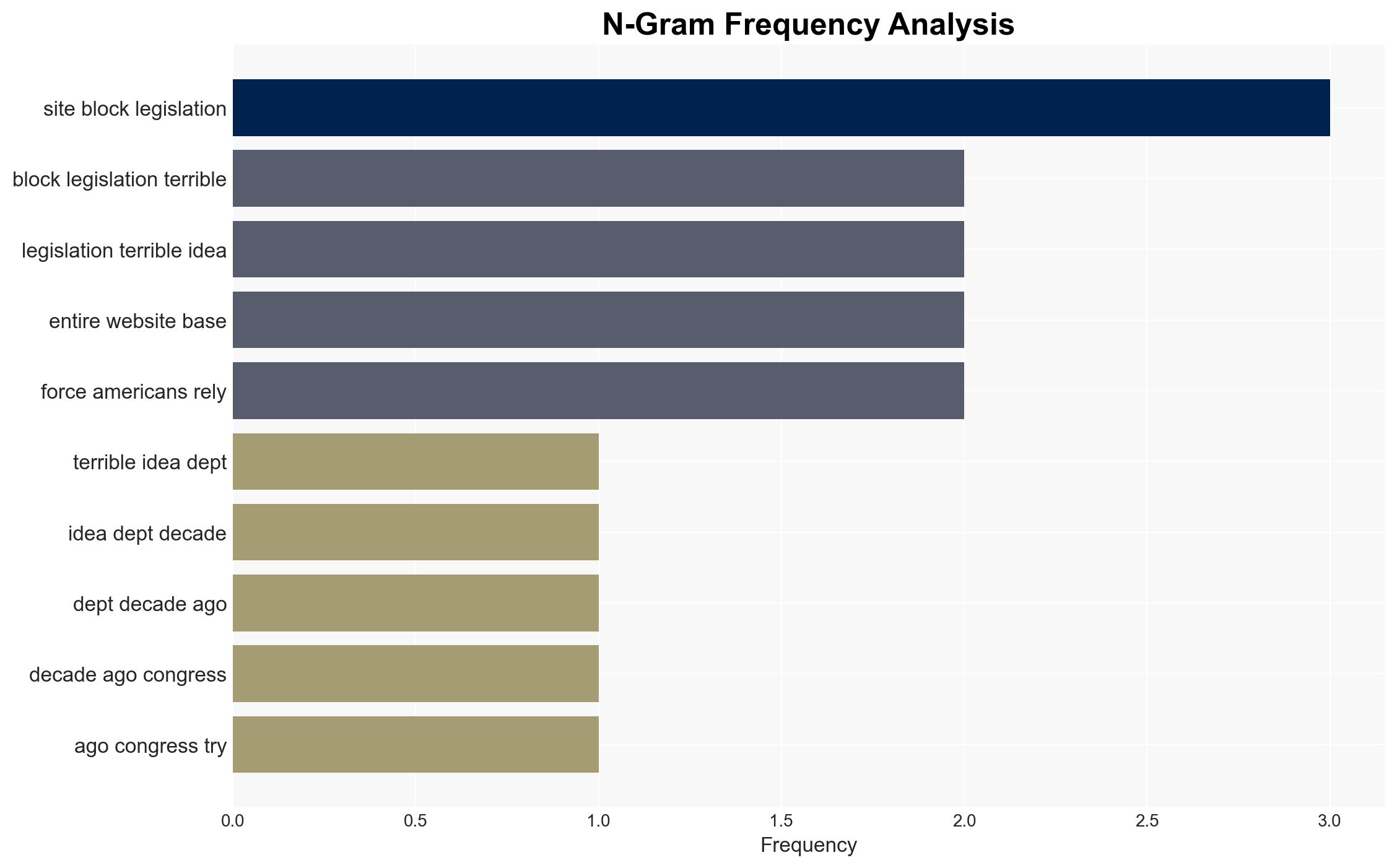Site-Blocking Legislation Is Back Its Still A Terrible Idea – Techdirt
Published on: 2025-04-07
Intelligence Report: Site-Blocking Legislation Is Back Its Still A Terrible Idea – Techdirt
1. BLUF (Bottom Line Up Front)
The reintroduction of site-blocking legislation in the form of the Foreign Anti-Digital Piracy Act (FADPA) poses significant threats to internet freedom and innovation. The proposed bill allows for the blocking of entire websites based on copyright infringement allegations, potentially leading to widespread collateral damage and censorship. Historical opposition to similar legislation, such as SOPA and PIPA, suggests that public and industry backlash could be substantial. It is recommended that stakeholders oppose this legislation to protect the open internet.
2. Detailed Analysis
The following structured analytic techniques have been applied for this analysis:
General Analysis
The FADPA bill seeks to empower copyright holders and the federal court to block websites accused of piracy. This approach revives previous attempts to control internet content, which were met with significant opposition due to concerns over free speech and the potential for abuse. The bill’s broad scope could lead to the blocking of non-infringing sites, as many websites share IP addresses. Historical data from countries like Austria and Russia, where similar measures have been implemented, indicate that determined users can easily circumvent blocks, rendering the legislation ineffective.
3. Implications and Strategic Risks
The implementation of site-blocking legislation could have far-reaching implications:
- National Security: The creation of an internet “kill switch” could be exploited by malicious actors, posing a risk to national cybersecurity.
- Economic Interests: The entertainment industry’s push for this legislation may harm other sectors reliant on a free and open internet, potentially stifling innovation and economic growth.
- Regional Stability: The precedent set by such legislation could encourage other nations to adopt similar measures, impacting global internet governance and regional stability.
4. Recommendations and Outlook
Recommendations:
- Engage in public awareness campaigns to educate stakeholders about the risks of site-blocking legislation.
- Advocate for alternative measures that address piracy without compromising internet freedom.
- Encourage technological solutions that enhance copyright protection without resorting to broad censorship.
Outlook:
Best-case scenario: The legislation is defeated due to public and industry opposition, preserving internet freedom.
Worst-case scenario: The bill is enacted, leading to widespread censorship and economic repercussions.
Most likely outcome: Continued debate and modification of the bill, with potential for compromise solutions.
5. Key Individuals and Entities
The report mentions significant individuals and organizations, including:
- Americans – Public opposition is crucial for influencing legislative outcomes.
- Tech companies – Likely to lead opposition efforts due to potential impacts on innovation.
- Entertainment industry – Primary advocates for the legislation, citing piracy concerns.
- EFF (Electronic Frontier Foundation) – Expected to be a key player in opposing the bill.




